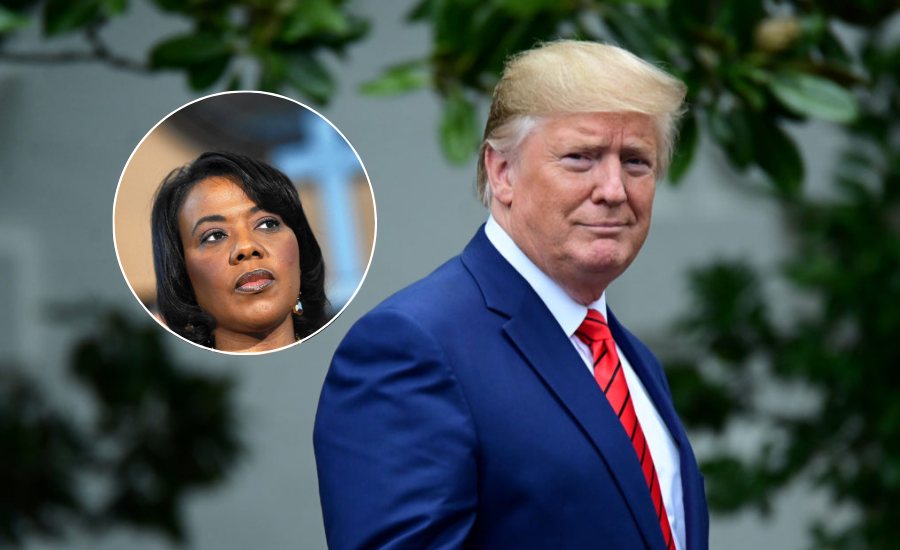Trump still has strong support among some Blacks, Evangelicals despite numerous controversies and negative press
Former President Donald Trump tosses out MAGA hats and greets attendees during a rally in Ohio on June 26, 2021. (Credit: Getty)
By Julia Holloway // Politics // EEW Magazine Online
A shooting on Easter that left one dead in southern Florida at a “Blacks for Trump” event, attended by between 60 and 80 people, placed a glaring spotlight on something media doesn’t cover as much these days: the strong support that former President Donald Trump still has among voters—Black and white.
Maurice Symonette, the owner of the house where the shooting took place, told CBS4 in Miami that he believes the attack on his home was politically motivated, though police disputed that claim, saying the fatal gunshots rang out after an argument over a cell phone.
The motive for the shooting may be in dispute, but the unwavering loyalty to Trump is not.
Donald Trump supporter Maurice Symonette of Miami says shooting at his home was politically motivated. (Credit: Riley Bunch)
Symmonette, who said the party was not his, accused his neighbors of being racist and disapproving of his support for Trump, making his residence a target for violence.
“I'm 'Blacks for Trump.' They're mad because I'm that,” he told CBS4. “And they're mad because I'm bringing Latin, Black, and white together to stop the war."
Trump supporters are still rallying around him, showing up in droves as he hosts rallies across the US. Despite negative press and accusations swirling around the controversial politician, his most ardent supporters are unfazed.
In fact, they are fighting hard as ever. According to a new Reuters report a local Republican Party leader in North Carolina threatened to get a county elections director fired or have her pay cut unless she helped him gain access to voting equipment.
The party official, William Keith Senter, sought evidence to support theories alleging the 2020 election was rigged against Trump, part of a larger national effort by Trump supporters to audit voting systems to bolster stolen-election claims.
Trump addresses a crowd at a rally in Delaware, Ohio Saturday, April 23, 2022. (Credit: Adam Cairns/The Columbus Dispatch)
A New York Times report took a close look at the Evangelical church community and the favor Trump still has among this group especially. It is no secret that Evangelical churches have grown increasingly influential in the political sector since the 1970s owing to grassroots activism and an ability to mobilize the electorate around issues such as abortion and gay marriage.
In the 17 months since the presidential election, some Evangelical leaders still believe that Joe Biden is an illegitimate President and the 2020 election was stolen from Trump, the rightful winner.
A "Stop the Steal" flag flies outside a campaign rally with U.S. President Donald Trump and Republican U.S. Senator Kelly Loeffler on the eve of Georgia’s run-off election in Dalton, Georgia, U.S., January 4, 2021. (Credit: REUTERS/Brian Snyder/File Photo)
According to The Times, citing the results of a poll released in November by the Public Religion Research Institute, 60 percent of white evangelical respondents continued to believe that the election was stolen — a far higher share than other Christian groups of any race. That figure was roughly 40 percent for white Catholics, 19 percent for Hispanic Catholics and 18 percent for Black Protestants.
Few can forget the infamous moment shortly after the election was called for Biden when Paula White-Cain, who served as Trump’s personal pastor and White House faith adviser, led a prayer for Trump’s reelection and described hearing “a sound of victory.” She also claimed that “The Lord said it is done,” adding, "For angels have even been dispatched from Africa right now,” as well as South America and are “coming here” to the United States to presumably deliver Trump’s victory.
Though the prayer was widely mocked on social media, it put something serious on display: the power of the Trump name and brand which remains as strong as ever.
Trump has not made a formal announcement but has hinted at a 2024 run.










